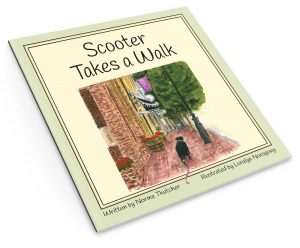
Photo by Norma Thatcher
Today is All Hallows Eve in preparation of All Saints Day tomorrow. Well, it is at least to Episcopalians and Roman Catholics and some other Christian denominations. It’s a holy day celebrating the saints. But most people are focused on Halloween.
I recall when we used to really celebrate Halloween at the office. One year we had fake tombstones that had the typical R.I.P. wording and then we added our own warnings to sales people to keep them in line. Oh, we were just kidding. I think.
A couple weeks ago I visited the Old Mission at Santa Barbara, California. The photo above shows a section of their historic mausoleum. For over a hundred years, this has served as the final resting place for Franciscan friars. I was surprised to see that R.I.P. was the final notation on each plaque. For whatever reason, R.I.P. had seemed disrespectful to me. I’ve seen where people have written “RIP, man” in online memorial books.
But seeing the notation on the old friars’ commemorative nameplates caused me to reconsider.
R.I.P. stands for the Latin phrase requiescat in pace. One definition of that phrase is May he begin to rest in peace. Somehow it got shortened to simply “Rest in Peace.”
And really, when you say the three words slowly and consider the meaning, it’s a lovely sentiment. Someone is no longer of this world. Maybe they had a hard and unhappy life. Rest in peace. Perhaps they could not break free of some type of addiction. Rest in peace. Whether it’s a baby who dies at birth or an aged person who has lived a long while in bodily pain or those who die “before their time” due to accidents or illness, we say goodbye and offer the prayer that they rest in peace.
As with practically any subject, there are online authors who take a stand against saying rest in peace.
GotQuestions.org holds the viewpoint that the phrase is a prayer and that “praying for the dead is unbiblical.” They are also upset over the usage because the phrase is not the word of God.
In contrast, here are an Anglican priest’s thoughts on why Anglicans and Episcopalians DO pray for the dead.
Julie Gray on Huff Post identified her reasons that people should stop saying and writing RIP in this post. So it’s not that she was against the full phrase; she simply didn’t like the three letter term, comparing it to LOL and HAH. And oh yeah, that last one doesn’t mean laughing as in hahaha. The Urban Dictionary defines HAH as “hot as hell” as well as other imaginative meanings.
And then we have online users who misuse the term by writing RIP in Peace, which would be translated as rest in peace in peace.
Because I would like to leave you with a smile today, I’ll share that the RIP in Peace phrase is often used as an example of the “redundant acronym syndrome.” According to KnowYourMeme.com, that syndrome is shortened to RAS Syndrome, which of course would be translated as Redundant Acronym Syndrome Syndrome. Don’t you love irony?
Warning: If you believe you are experiencing Redundant Acronym Syndrome Syndrome, contact your doctor immediately.
Otherwise, just keep laughing.



